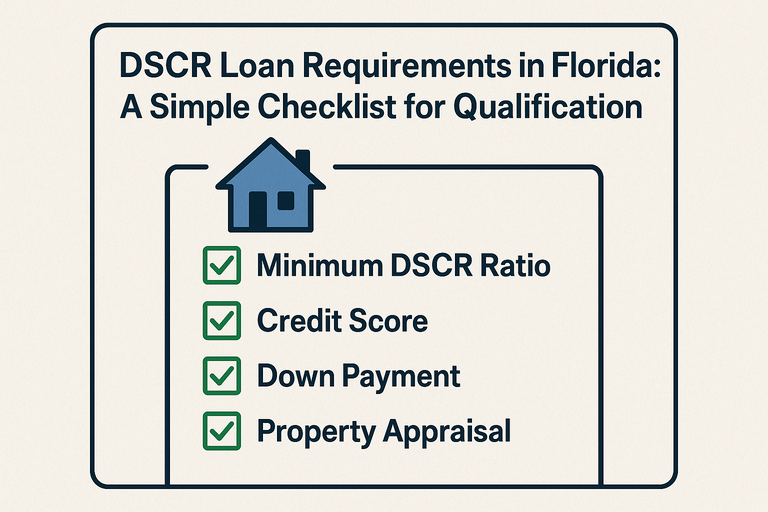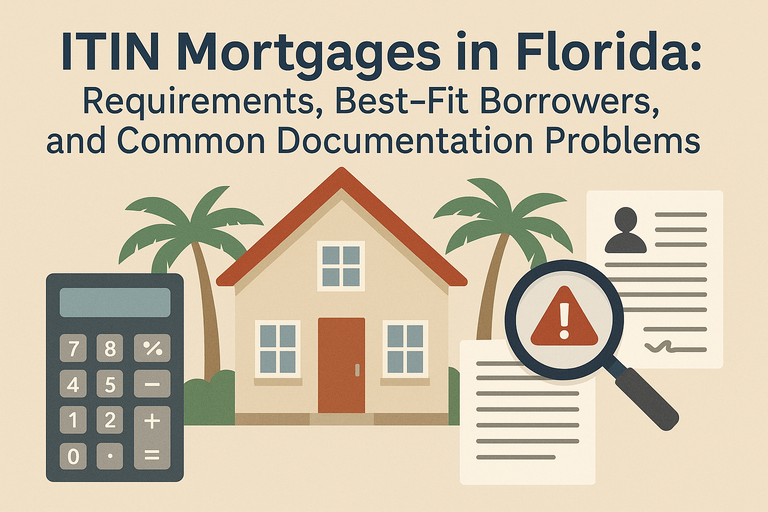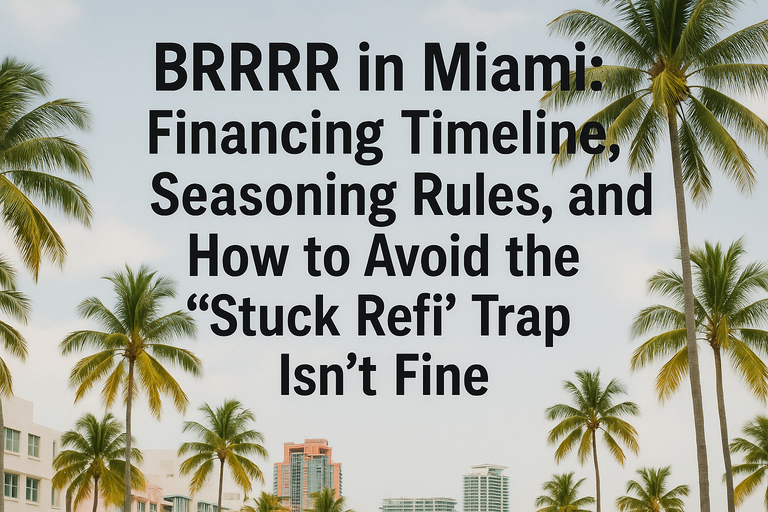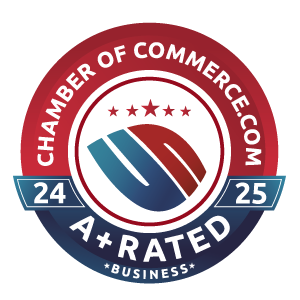Florida’s booming real estate market has made DSCR loans one of the most sought-after financing options for property investors. Whether you’re eyeing a beachfront condo in Tampa, a vacation rental in Orlando, or a multi-family property in Jacksonville, understanding how to qualify for a DSCR loan is your first step toward building a profitable rental portfolio. This comprehensive guide breaks down what is a DSCR loan requirements and answers the critical question: how hard is it to get a DSCR loan in Florida?
The Good News: DSCR Loans Are More Accessible Than You Think
Many investors assume that alternative financing comes with complicated qualification hurdles. The reality is that DSCR loans are often easier to obtain than conventional investment property mortgages—especially for self-employed individuals, portfolio investors, and entrepreneurs. The key difference? DSCR lenders focus on the property’s income potential, not your personal finances.
So how hard is it to get a DSCR loan? If you have decent credit, a solid down payment, and purchase a property with strong rental income, the process is remarkably straightforward. Unlike conventional loans that scrutinize every aspect of your personal financial life, DSCR loans simplify qualification to a few essential criteria.
For a deeper look at how investors are successfully using these programs, learn how Miami real estate professionals are leveraging DSCR loans in 2024 to scale their investment portfolios
Essential DSCR Loan Requirements: Your Florida Checklist
Understanding what is a DSCR loan requirements starts with this foundational checklist. While specific lenders may have slight variations, these represent the standard requirements across most Florida DSCR loan programs:
1. Credit Score Requirements
Minimum Score: Most Florida DSCR lenders require a credit score of 660-680, though some programs accept scores as low as 620-640 with compensating factors.
What Counts as Compensating Factors:
- Larger down payments (30-35% instead of 20-25%)
- Higher DSCR ratios (1.5+ instead of 1.25)
- Significant cash reserves (12+ months of payments)
- Previous real estate investment experience
Credit Quality Matters: While you don’t need perfect credit to qualify, recent bankruptcies, foreclosures, or short sales will impact eligibility. Most lenders require:
- 4 years since bankruptcy discharge
- 3-5 years since foreclosure or short sale
- No recent late payments on existing mortgages
For Florida investors wondering how to qualify for a DSCR loan with credit challenges, working on credit improvement for 6-12 months before applying often makes the difference between denial and approval.
2. Down Payment Requirements
Minimum Down Payment: Expect to put down at least 20-25% for most Florida DSCR loans. Some programs require only 15-20% for experienced investors with excellent credit, while others may require 30% for riskier scenarios.
Down Payment Impact on Terms:
- 20% down: Standard rates, 1.25+ DSCR typically required
- 25% down: Better rates, more lender options, 1.0-1.15 DSCR may be acceptable
- 30-35% down: Best rates, maximum flexibility, DSCR as low as 0.75 possible
Source of Funds: Your down payment can come from savings, investment accounts, retirement accounts, gift funds from family, or equity from other properties. Florida lenders will verify your funds through 2-3 months of bank statements.
3. Property Requirements and Restrictions
Eligible Property Types:
- Single-family homes
- Condos and townhomes
- 2-4 unit properties
- Mixed-use properties (with restrictions)
- New construction and recently renovated properties
Property Use: The property must be used exclusively as an investment rental—not as your primary residence or vacation home. Florida’s popularity for vacation rentals means many DSCR lenders are comfortable with short-term rental income projections.
Property Condition: Most DSCR lenders require the property to be in good, rentable condition. Fixer-uppers or properties needing major repairs typically don’t qualify, though some lenders offer renovation DSCR loans combining purchase price and repair costs.
Property Location: All Florida counties are generally eligible, from Pensacola to Key West. However, extremely rural properties or those in declining markets may face additional scrutiny.
4. The DSCR Calculation: Your Make-or-Break Number
Understanding how to qualify for a DSCR loan requires grasping the debt service coverage ratio calculation—it’s the heart of your loan approval.
If you’re new to this concept, this detailed guide breaks down what DSCR means and how it works for South Florida investors, offering clear examples of how the ratio affects qualification.
The Formula: DSCR = Monthly Rental Income ÷ Monthly Debt Service
Monthly Debt Service Includes:
- Principal and interest payment
- Property taxes
- Homeowners insurance
- HOA or condo association fees
- Flood insurance (common in coastal Florida)
- Private mortgage insurance if applicable
Minimum DSCR Requirements:
- 1.25 or higher: Best rates and terms, easiest approval
- 1.0-1.24: Acceptable for most programs, slightly higher rates
- 0.75-0.99: Available with strong compensating factors, higher rates
- Below 0.75: Generally requires significant down payments (35-40%) and excellent credit
Florida Example: A Tampa rental property generates $2,800 monthly rent. The mortgage payment is $1,800, taxes are $350, insurance is $200, and HOA is $250.
- Total debt service: $2,600
- DSCR: $2,800 ÷ $2,600 = 1.08
This 1.08 DSCR would qualify with most Florida lenders, though a ratio of 1.25+ would secure better pricing.
5. Income Documentation: What You DON’T Need
One of the most attractive aspects of DSCR loan requirements is what’s NOT required. Understanding this helps answer “how hard is it to get a DSCR loan”—it’s significantly easier than conventional loans specifically because you don’t need:
Not Required for DSCR Loans:
- Personal tax returns
- W-2s or 1099s
- Pay stubs
- Employment verification letters
- Personal debt-to-income calculations
- Proof of employment or business income
- Profit and loss statements
What IS Required:
- Existing lease agreement (if property is already rented)
- OR rental income appraisal from licensed appraiser
- OR market rent schedule from the appraisal
This streamlined approach is precisely why self-employed Florida investors, retirees, business owners with significant write-offs, and portfolio investors prefer DSCR loans.
6. Asset and Reserve Requirements
Verifying Down Payment: Florida lenders require 2-3 months of bank statements showing your down payment funds and closing costs. The funds must be “seasoned” (in your account for 60+ days) or you’ll need to document their source.
Reserve Requirements: While not universally required, many lenders prefer to see 6-12 months of property payments (PITI) in reserves after closing. For a property with $2,500 monthly expenses, that means $15,000-$30,000 in liquid reserves.
Retirement Accounts: Many lenders count 60-70% of retirement account balances toward reserves, making it easier for investors with strong 401(k) or IRA accounts to qualify.
7. Loan Amount Limits
Minimum Loan Amounts: Most Florida DSCR programs have minimum loan amounts of $75,000-$150,000. This can be challenging for lower-priced properties in markets like Ocala or Lakeland.
Maximum Loan Amounts: DSCR loans typically cap at $2-3 million, though some portfolio lenders go higher for exceptional scenarios. High-balance DSCR loans in expensive Florida markets like Miami Beach or Naples are available but require stronger qualifications.
Special Florida Considerations for DSCR Qualification
Flood Insurance Impact
Coastal Florida properties often require flood insurance, which can significantly impact your DSCR calculation. A property requiring $3,000 annually in flood insurance adds $250 to monthly debt service, potentially dropping your DSCR from 1.3 to 1.15.
When evaluating how to qualify for a DSCR loan on Florida coastal properties, factor flood insurance early in your analysis.
Condo Association Requirements
Florida’s abundant condo inventory works well with DSCR financing, but associations have their own rental restrictions. Some buildings require:
- Minimum ownership periods before renting (6-12 months)
- Caps on total rental units in the building
- Rental term minimums (30-day, 6-month, or annual leases)
Ensure the condo allows rentals before pursuing DSCR financing—a great rental property that you can’t legally rent defeats the purpose.
Hurricane Season and Property Insurance
Florida’s insurance market has tightened dramatically, with costs rising across the state. When calculating your DSCR, use realistic insurance estimates from actual quotes, not outdated figures. An unexpectedly high insurance premium can sink an otherwise qualifying DSCR ratio.
Short-Term Rental Income
Florida’s tourist economy makes vacation rentals highly profitable in markets like Orlando, Miami, the Keys, Clearwater, and Destin. Many DSCR lenders will evaluate short-term rental income, but require:
- Documentation of similar properties’ rental history
- Conservative income estimates (often using 75% occupancy assumptions)
- Properties in established vacation rental markets
- Compliance with local short-term rental regulations
How to Qualify for a DSCR Loan: Action Steps
Now that you understand what is a DSCR loan requirements, here’s your action plan:
Step 1: Check Your Credit Pull your credit reports from all three bureaus and verify your scores meet the 660+ threshold. Dispute errors and pay down credit card balances to optimize scores.
Step 2: Calculate Your Budget Determine how much you can put down (20-25% minimum) and ensure you’ll have adequate reserves after closing.
Step 3: Analyze Florida Markets Research rental rates in your target markets. Focus on areas where you can achieve 1.25+ DSCR ratios at your price point.
Step 4: Run the Numbers Before making offers, calculate potential DSCR ratios using realistic rental income and complete debt service figures including taxes, insurance, and HOA fees.
Step 5: Connect with DSCR Lenders Work with Florida mortgage brokers or lenders specializing in DSCR loans. They can pre-qualify you and provide guidance on which properties will meet requirements.
Step 6: Get Pre-Approved Obtain a pre-approval letter showing you’re ready to close quickly—a competitive advantage in Florida’s fast-moving market.
How Hard Is It to Get a DSCR Loan? The Bottom Line
So how hard is it to get a DSCR loan in Florida? For investors who meet the basic criteria—660+ credit score, 20-25% down payment, and a property with adequate rental income—the process is actually easier than conventional financing.
You’ll face fewer documentation requirements, faster processing times (often 2-3 weeks), and greater flexibility in building a large portfolio. The absence of personal income verification, employment checks, and debt-to-income calculations removes the barriers that block many real estate investors from conventional financing.
The key is understanding what is a DSCR loan requirements before you start shopping for properties. Focus on acquisitions that will generate strong DSCR ratios, maintain good credit, and work with experienced Florida DSCR lenders who understand the local market dynamics.
Florida’s rental markets—from Jacksonville’s emerging neighborhoods to Fort Myers’ growing population centers and Tampa’s steady appreciation—offer exceptional opportunities for DSCR-financed investments. With this checklist in hand, you’re equipped to qualify for DSCR financing and build the rental portfolio you’ve envisioned.
Ready to start the qualification process for your Florida investment property? Connect with mortgage professionals who specialize in DSCR lending and can evaluate your specific scenario to determine the best path forward.
To see how DSCR financing compares with other non-QM and traditional mortgage solutions, explore the range of loan options available through Miami Mortgage Broker






